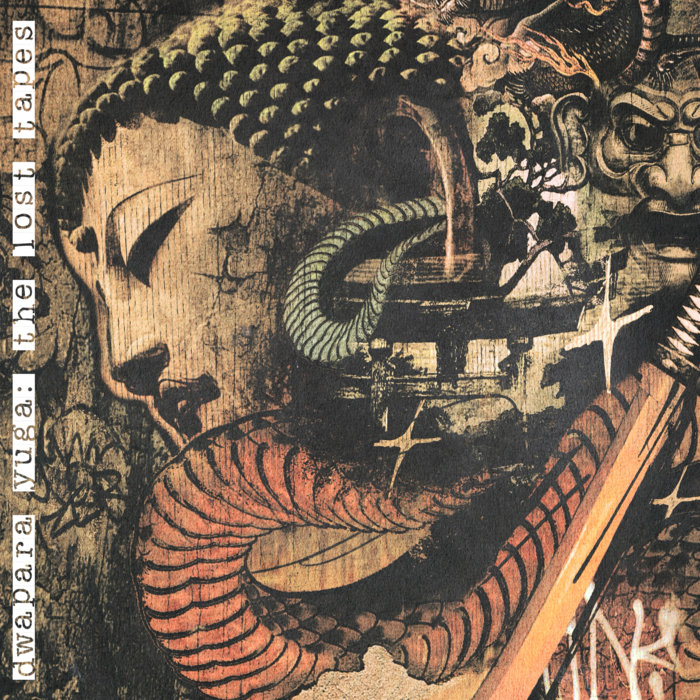
Stand Firm – Tenzoe X Anahata
this blog is GROOVY – check out great Soul, Funk, Jazz, Hip Hop, Bass, Breaks , Reggae, House n many more TUNES
Buddhism isn’t just about meditating under a Bodhi tree or contemplating the nature of suffering; it’s also got some seriously cool music vibes! Let’s take a chill journey through the history of Buddhist music, exploring its roots, evolution, and all those quirky musicians who sprinkle their own flavor on this ancient art form.
Buddhist music has been around for centuries. You could say it’s as old as Buddha himself! When Siddhartha Gautama (yup, that’s the dude) reached enlightenment around 2,500 years ago in India, he was all about sharing his newfound wisdom. But before they dropped beats and bangers like we do today, monks were chanting sacred texts and mantras to help spread those peaceful vibes.
The earliest forms of Buddhist music were simple chants—think soothing sounds that resonate deeply within your soul. These chants (or sūtra) were often sung in Pali or Sanskrit—the languages used in many early scriptures. Monks would gather together in serene settings to chant these verses for meditation and spiritual growth.
Imagine this: a bunch of monks sitting cross-legged with their eyes closed, creating harmonies that could calm even the stormiest seas! They used bells (ghanta), drums (dalang), and wind instruments like flutes to create an accompanying atmosphere that felt both mystical and groovy.
With Buddhism spreading across Asia like wildfire—thanks to traveling monks spreading good vibes across China into Tibet, Japan and beyond—the soundscapes diversified big time!
In Tibet, things took on a whole new dimension with unique throat singing techniques known as overtone singing. This involves producing multiple notes simultaneously! Yes folks, you heard it right—it’s not just one note; it’s an entire concert happening from one person’s mouth!
And let’s talk about Tibetan chanting which can go on for hours at a stretch—it’s kind of like binge-watching your favorite series but way more meditative. More than entertainment though; these chants are actually believed to help purify negative energies.
Over in Japan’s Zen tradition—a little different vibe going on here—they focused heavily on simplicity. Enter shakuhachi, an end-blown flute made from bamboo which creates sounds so hauntingly beautiful you’d think it came straight from another realm!
Zen gardens filled with gravel rakes might not throw you off the groove but rather enhance your listening experience while zoning out with some mellow shakuhachi tunes echoing through Japanese temples.
As time rolled by into modernity during the late 20th century… drumroll please… enter world fusion artists blending traditional melodies with rock ‘n’ roll flair! Doesn’t get any cooler than merging guitar solos with heartbeat-like drums found traditionally in Buddhist rituals!
Here’s where some fun facts start pouring out:
Guitar Gurus: Did you know guitarist Peter Saddington created “the first-ever recording using nothing but Tibetan bowls?” Yup—those shiny metallic bowls weren’t meant just for soup anymore!
Beatnik Buddhas: In ’60s San Francisco (where flower power met meditation), there existed band The Holy Modal Rounders. They mixed folk-rock rhythms infused heavily with Eastern philosophies – talk about peace-loving hipsters jamming away!
Meditative Metalheads: Heavy metal bands such as Mastodon have songs inspired by Buddhist themes—not exactly what you’d picture when thinking ‘chanting,’ yet they’ve mastered graceful transitions between roaring guitars & contemplative lyrics reflecting life cycles similar too Buddhism teachings.
Peaceful Punk: And let’s not forget punk rock legends like Bad Religion! Their tracks often tackle existential questions mirroring key concepts found within Buddhism—but don’t expect mellow acoustic versions here; we’re talking fast riffs paired up nicely alongside intricate philosophical discourse!
Fast forward to today—the world has embraced mindfulness & meditation practices leading up to serious booming popularity among various genres embedding noble truths behind lyrics whether people admit they’re inspired by Buddhistic philosophies or not…
From electronic chill-out sessions perfect for yoga classes hitting blissed-out highs—to soft indie tracks serenading late-night thoughts while sipping chai—you can find anything grounded in this endless sea humming along connecting souls globally invoking awareness over matters much deeper than meets eye…
As always though amidst serene discoveries sprinkled throughout musical landscapes emerges quirky personalities still holding onto humor weaving delightful tales upon melodious journeys they’ve beautifully crafted themselves…
So next time you’re vibing out to ethereal sounds coming from farthest corners merging seamlessly cultures? Remember—they may have learned something profound once perched atop pillow discussing reality whilst munching cookies after deep reflection…
Buddhist music is more than just sound—it grooves us together creating harmony unheard before—a reminder life is transient enjoy every beat shared along way… 🌸✨

Stand Firm – Tenzoe X Anahata

MACKLEMORE & RYAN LEWIS – THRIFT SHOP FEAT. WANZ (OFFICIAL VIDEO) – Decesare Formula